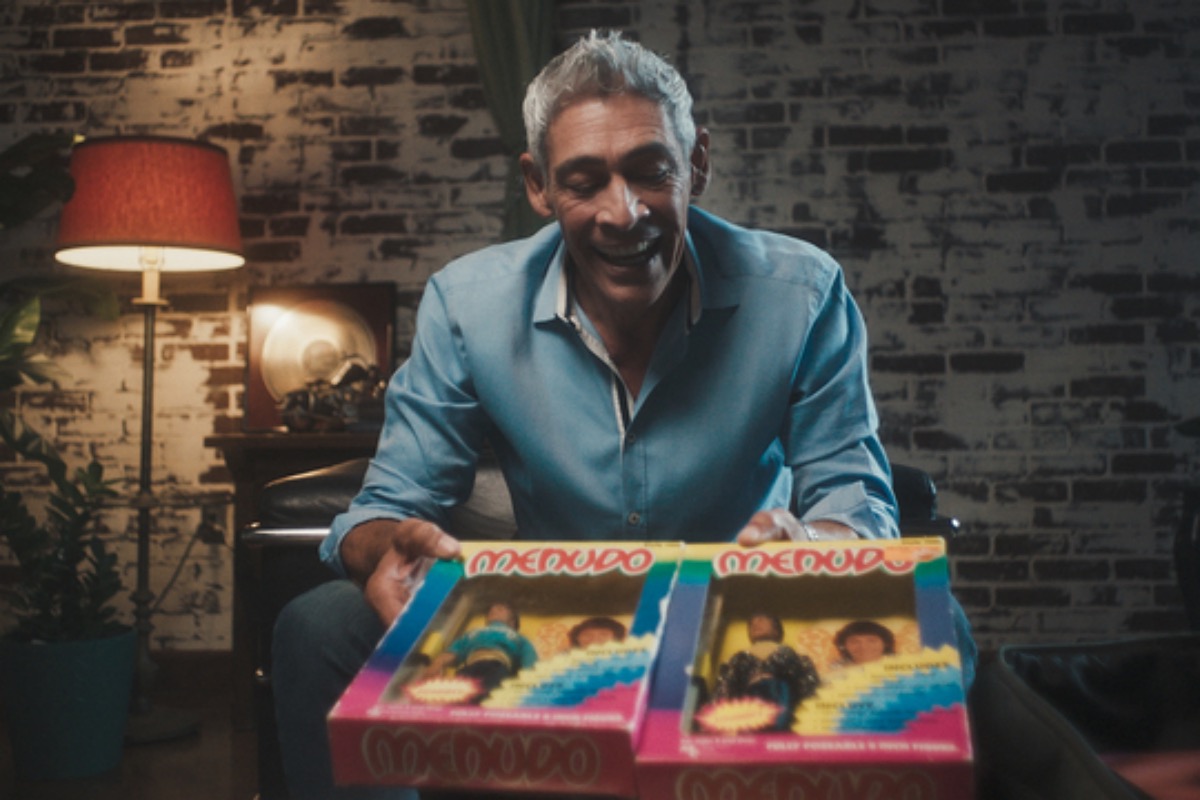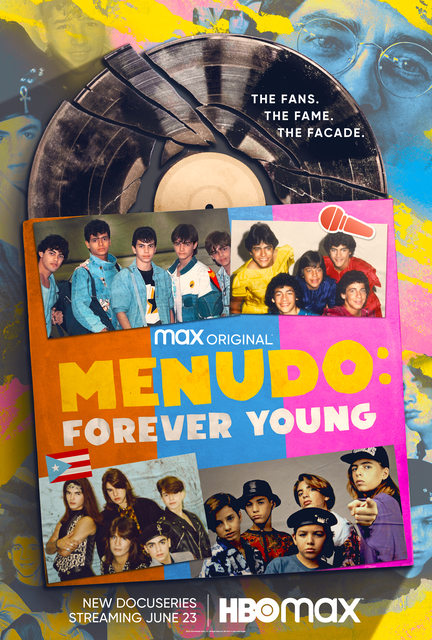

Screenshot from HBO’s ‘Menudo: Forever Young’ featuring Johnny Lozada, a member of the Puerto Rican boyband from 1980 to 1984 (Courtesy of HBO)
The team behind HBO’s new docuseries Menudo: Forever Young is asking you to hold two things in your mind at the same time: first, that the members of the record-breaking boyband Menudo helped promote Puerto Rico as cultural ambassadors for the island, and second, that those same members went through emotional, physical, financial, and sexual abuse to be a part of the group.
Was the cost too high? The docuseries leaves that question unanswered, but when Latino Rebels sat down with director and executive producer Kristofer Ríos, he said didn’t “think any of the guys would say they would never do it again… It costs them a lot, but they’re really proud of their contributions.”
For Ríos, the purpose of the docuseries isn’t to damn Menudo or its fandom, but rather to let the Menudos tell their story. He wants to acknowledge the “great and important” things the band members accomplished, while also not shying away from the hard stuff. To erase the negative —here, many of the performers’ actual experiences— in favor of just the positive would be “selfish,” said Ríos.
https://www.youtube.com/watch?v=h8b3VB0vSqo
Ríos didn’t always take Menudo so seriously. Fellow director and executive producer Angel Manuel Soto had been researching Menudo for “seven to eight” years before landing on the docuseries format and bringing in Ríos and his news background. When executive producers Cristina Costantini and Alex Fumero called Ríos and asked if he wanted to be a part of a Menudo documentary, he laughed. He thought they were joking.
At the time, Menudo was all “shiny outfits” and fluff in Ríos’ mind. This was before the Brittany Spears documentary and many of the other “smart pop culture” exposés we’ve seen of late. But Costantini and Fumero’s Mucho Mucho Amor: The Legend of Walter Mercado was out, and they convinced Ríos to use it as a model. Together, they could make something smart and meaningful about Menudo.
And they did, exposing the complicated impact of the group. Ríos asserts that Menudo helped establish the pan-Latinx identity by being one of the first “cultural touchstones” that went across “the Spanish-speaking world.” Especially for youth, nothing before had connected Latinx people in the same way, and “that is a really important thing to celebrate.”


Courtesy of HBO
But when you look harder, as the docuseries does, and you see the power imbalance baked into the Menudo model, you realize you cannot just celebrate Menudo—you also have to critique it.
In the end, Menudo endures as a symbol of Latinx identity, masculinity, and a generation’s coming-of-age not just because of their outward-facing cheer and dance moves. Their legacy also points to our societies’ continued failures and imbalances.
Going into creating the docuseries, Puerto Ricans Ríos and Soto knew they were “going to be critiquing an economic system, and critiquing a culture—our culture.” Forever Young shows how Menudo was an industry in itself. It wasn’t just fame, concert tickets, and albums. Writers and editors knew “if they needed to sell newspapers and magazines, all they had to do was write a story about Menudo, and that’s it—they would fly off the shelves.”
At the time, “tourism became a really big thing. And Menudo was a big part of promoting the island,” causing the government and business leaders to get involved. That made Menudo’s creator and manager Edgardo Díaz a very powerful man, one who used his influence to exploit children, as Forever Young details.
With all this unearthing of past abuses, it seems a funny time for Mario Lopez to relaunch the Menudo brand. Because the abuse aside, maybe the moment is ideal. Menudo is having a media moment with the docuseries out now and a scripted show a few years prior. Menudo fans have kids of their own, now at the right age to become obsessed with the next boyband. And the model clearly has never stopped working—you can draw a straight line from Menudo to NYSNC to BTS. But if they’re going to revive Menudo, Ríos can only “hope that all that stuff that does harm is addressed,” which seems unlikely.
Yes, since the nineties, when abuse allegations against the band’s management —and particularly band leader Edgardo Díaz— began to come out, we as a society have developed a “better vocabulary” for these issues and “better tools… to engage with these allegations,” according to Ríos. Back then, the response was “a lot of skepticism… a lot of shaming.” The media was certainly guilty of either largely ignoring what was happening or treating it “salaciously.”
That’s why Forever Young needed to be made now. We missed this story at the time. But we’d be foolish to believe that vulnerable talent is still no longer in danger from the infamously abusive entertainment industry.
The exploitation outlined in the docuseries is very serious —from predatory contracts to criminal neglect and even rape— but you could be a die-hard Menudo fan and have no idea about it. Part of that, Ríos theorizes, may be based on the structure of the band, which Lopez plans to revive. Since members “aged out” and were replaced with new ones, so were the fans, meaning after their favorite members left, fans probably stopped following the latest news from Menudo.
Then there was the relative media silence, fueled partly by society’s lack of nuance around abuse. But there was also something else: Menudo was this positive, joyful, and somewhat silly representation of what it was to be a young Puerto Rican. People didn’t want to mess with that. They didn’t want to hold two things in their minds at once.
And the boys who sang and danced their way into our hearts paid the price.
***
A writer and activist, Cristina Escobar is the co-founder of latinamedia.co, uplifting Latina and gender non-conforming Latinx perspectives in media. She’s a member of the Latino Entertainment Journalists Association and writes at the intersection of race, gender, and pop culture. Twitter: @cescobarandrade



[…] Credit: Source link […]